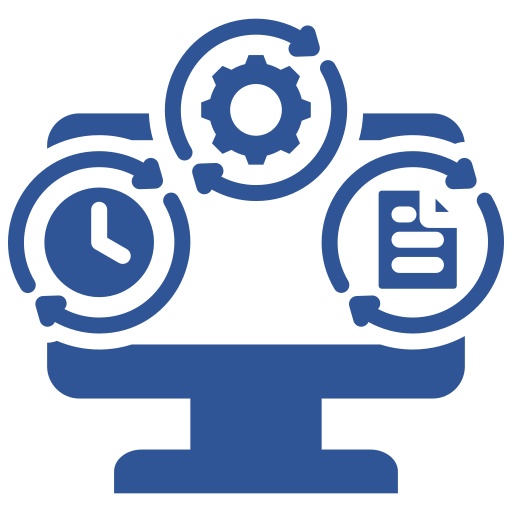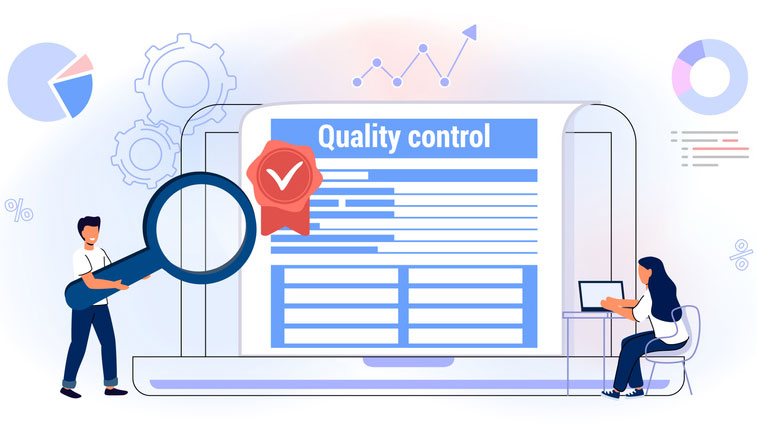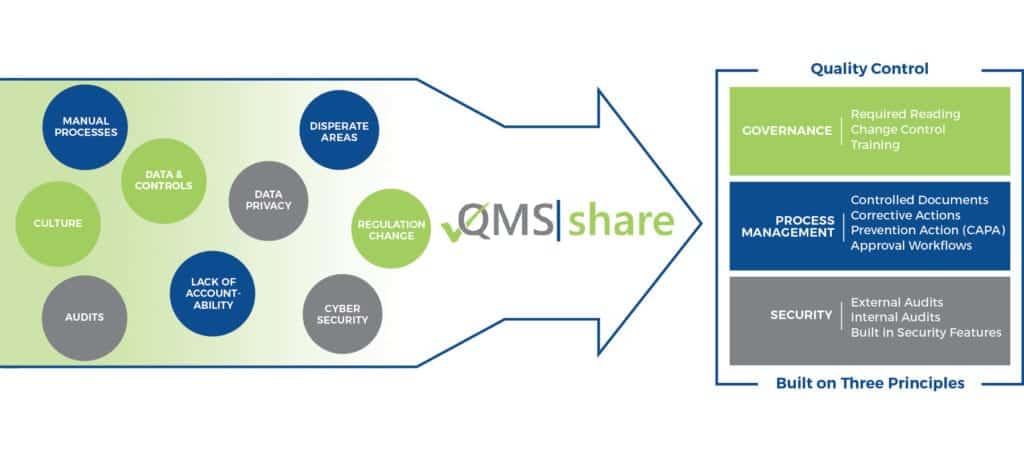The quality management landscape is constantly evolving, and in 2023, companies across various industries are looking for the best Quality Management System (QMS) software to streamline their processes, ensure compliance, and improve customer satisfaction.
As a premier provider of QMS Consulting Services, we at Abel Solutions know what makes an effective, reliable, and scalable QMS software. And we’d like to share our criteria to help your organization make the right choice for your current situation.
This article will discuss:
-
- the top QMS software
- four types of QMS
- how to choose a suitable software for your organization
- the benefits of investing in a quality management system
What is the best QMS software?
The best QMS software is a comprehensive and adaptable quality management system framework that effectively manages and improves an organization’s quality management processes while ensuring compliance with relevant quality standards. The best QMS should enable organizations to proactively address quality issues, maintain document control, and facilitate corrective and preventive action.
What are the 4 types of QMS?
1. Enterprise Quality Management System (EQMS):
An EQMS is an integrated software solution that automates and streamlines quality management processes across an entire organization.

By centralizing all quality-related information and processes, an EQMS helps organizations maintain compliance, foster continuous improvement, and reduce the risk of errors.
Organizations using an EQMS can benefit from increased efficiency, improved decision-making, and enhanced collaboration among different departments.
2. Industry-specific QMS:
Industry-specific QMS solutions are tailored to the unique requirements and regulations of specific industries, such as life sciences, medical device manufacturing, or automotive.
T
For example, a QMS for the medical device industry may include built-in templates and workflows for FDA 21 CFR Part 820 compliance, while a QMS for the automotive sector might offer tools for adhering to IATF 16949 requirements.
These tailored solutions enable organizations to focus on their core business processes while ensuring quality and compliance.
3. Modular QMS:
Modular QMS systems offer a more flexible approach, allowing organizations to select and integrate specific modules based on their needs.

The modular approach is particularly suitable for small-to-medium-sized enterprises (SMEs) that may not have the resources to invest in a comprehensive EQMS but still require specific quality management functionalities.
4. Cloud-based QMS:
A cloud-based QMS is hosted on the provider’s servers and accessed via the internet.

Cloud-based QMS solutions offer several advantages, including ease of implementation, automatic updates, and scalability.
Furthermore, cloud-based systems often provide enhanced data security and backup options, ensuring the safety and integrity of your quality management data.
How do I choose a QMS software?
Selecting the right QMS software is crucial for the success of your organization’s quality management efforts. To make an informed decision, consider the following factors:
1. Industry-specific requirements:
Ensure the software meets the unique needs and regulations of your industry, such as medical device companies or life sciences.
An industry-specific QMS will include features and functionalities tailored to address your organization’s specific challenges and compliance requirements. Investigate whether the software vendor has experience working with businesses in your sector and can demonstrate success stories and satisfied clients.
2. Scalability:
Choose a system that can grow with your organization, accommodating increased complexity and additional users.
Scalability is particularly important for businesses with plans for expansion or those anticipating changes in regulatory requirements. Look for a QMS software that offers flexible pricing plans and modular features, allowing you to scale up or down as needed.
3. Integration:
Select a QMS that can easily integrate with your existing software systems to avoid disruptions in your workflow. Seamless integration ensures that data can flow smoothly between different systems, reducing manual data entry, minimizing errors, and improving overall efficiency.
Consider a QMS software that offers pre-built integrations with popular tools, such as Enterprise Resource Planning (ERP) systems, Customer Relationship Management (CRM) platforms, and Laboratory Information Management Systems (LIMS).
4. User-friendliness:
Opt for a system with an intuitive interface and user-friendly features to facilitate easy adoption and minimize training time.
A user-friendly QMS software will enable employees to navigate the system with ease, making it more likely that they will use the system consistently and accurately. Take advantage of product demonstrations and trial periods to assess the user experience and ensure that it meets
Benefits of Quality Management Software
Implementing a quality management system software offers numerous benefits, including:





QMS|share: Our Flexible QMS Software
Our QMS|share is a modular solution specifically designed to allow organizations to select which components are the right fit for them.
It is flexible and customizable, providing a solution that will grow and evolve with your company.
From SMBs to Enterprise
QMS|share can be tailored for SMBs to include document control, corrective/preventive action tracking, and audit management, while enterprise QMS software can offer broader features like multi-site management, supplier management, compliance tracking, and risk assessment.
Industry-specific
QMS|share can be customized to meet the quality management requirements and regulations of any industry, providing real-time visibility into quality metrics and KPIs for businesses to achieve greater operational efficiency, maintain compliance with industry regulations, and focus on core business objectives.
Modular & Scalable
QMS|share can be configured as a modular solution by providing customizable modules that can be tailored to a business’s unique quality management needs, integrating with other systems, and allowing businesses to implement a flexible and scalable solution that improves operational efficiency, regulatory compliance, cost reduction, and customer satisfaction.
Cloud-based
As a cloud-based solution, QMS|share offers remote access, enhanced collaboration, automatic updates, and scalability, eliminating the need for expensive hardware, software, and IT support while improving efficiency, achieving regulatory compliance, and providing a cost-effective and flexible solution for quality management processes.
Easily integrated
QMS|share presents flexible integration options, including integration with existing business systems and processes, supporting APIs and web services, automation triggers, and mobile device integration, enhancing efficiency, reducing errors, and providing real-time visibility into quality metrics and KPIs.
User-friendly
QMS|share is designed with a user-friendly interface, customizable workflows, search and filter tools, customizable user roles and permissions, and online training and support resources, among other features, making it easy and efficient for businesses to navigate and use the system effectively.
Get the Best QMS Software For Your Organization
Choosing the best QMS software for small business through enterprise level requires thorough research and consideration of factors such as industry-specific requirements, scalability, integration capabilities, user-friendliness, and vendor support.
By investing in a quality management system software that best aligns with your organization’s needs, you can enhance quality control, streamline documentation, reduce risk, and promote continuous improvement.
Our QMS|share solution presents your organization with customizability that meets its business needs today while easily growing into its needs for tomorrow.










